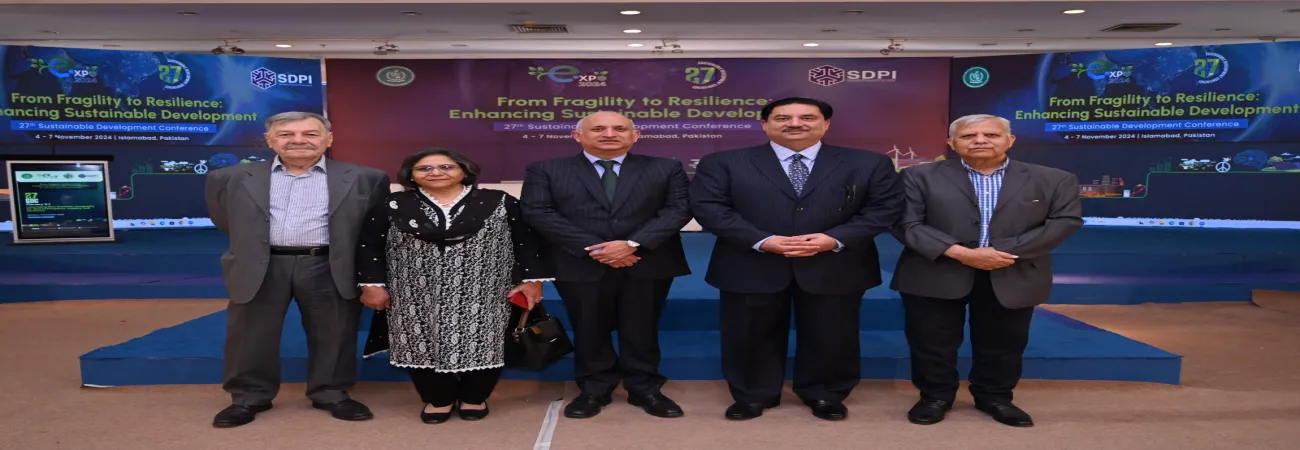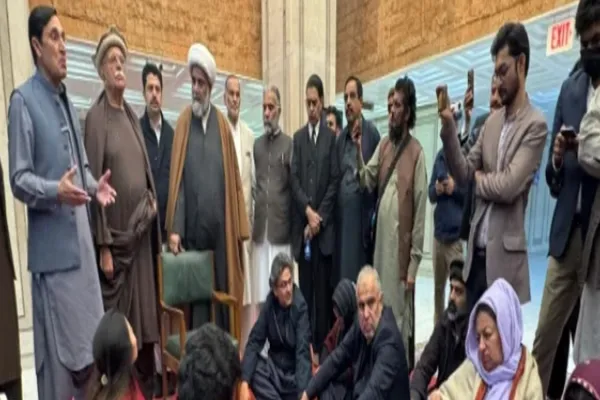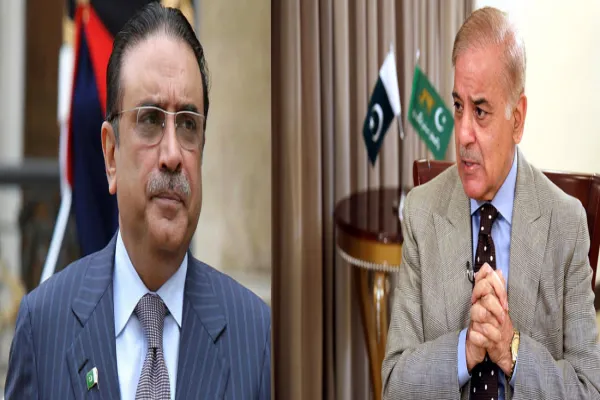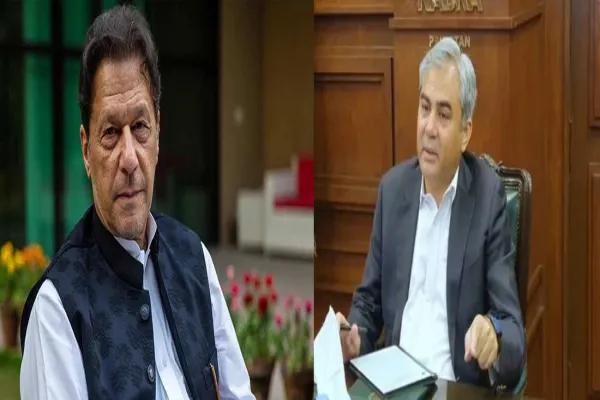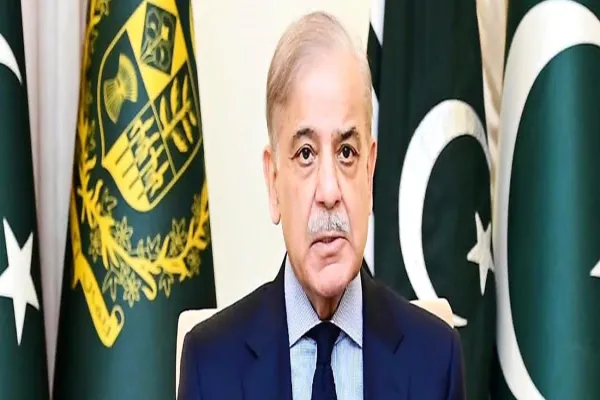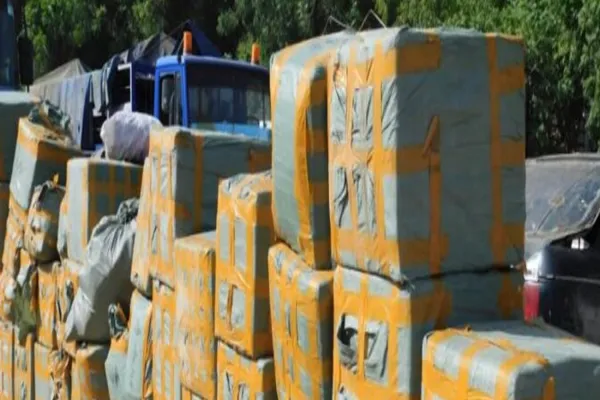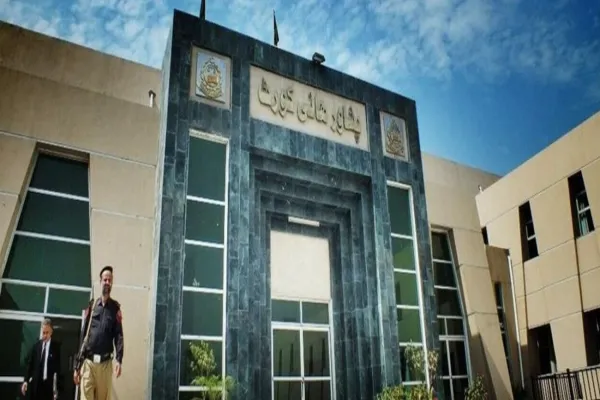i NEWS PAKISTAN
The second day of the Sustainable Development Conference (SDC) saw a number of panel discussions, with speakers deliberating on issues including regional connectivity, climate change, plastic waste management, women empowerment, debt justice, economic zones, textile industry and accountability. The conference is being organised by the Sustainable Development Policy Institute (SDPI). In a panel discussion on ‘Leveraging new economic geography for shared prosperity, stability and resilience’ speakers on Tuesday stressed the need to translate Pakistan’s regional connectivity and infrastructure into economic incentives. Pakistan Regional Economic Forum, Chairperson Haroon Sharif questioned the efficiency of the infrastructure that connected Pakistan with various countries, including China as well as South and Central Asian states. He said the motorways had been politically beneficial and served the elite who drive big cars, but if the same investments were made in Pakistan Railways, it might have gotten more economic gains as it would have promoted trade.
Vice Chancellor of BeaconHouse National University, Lahore, Dr Moeed Yusuf started on a grim note by saying that our conversation is being held in echo-chambers, which unfortunately is falling on deaf ears and nobody cares. He said the problem is that we continue to hold conversations on regional cooperation while the world was moving on. Former ambassador to China Naghmana Hashmi said CPEC was never about power projects and connectivity alone, “we were supposed to develop our industrial zones based on the connectivity from CPEC”. Former federal minister, Khurram Dastgir Khan said Pakistan had always been leveraging its geographical location to determine our foreign policy. Dr Dushni Weerakoon, Institute of Policy Studies Sri Lanka executive director, said we have similar conversations about the “tyranny of location” in Sri Lanka. Dr Paras Kharel from South Asia Watch on Trade, Economics and Environment, Nepal, spoke on the importance of Saarc in connection with regional cooperation.
Dr Rajan Suresh Ratna from UNESCAP-SSWA, India, said it was not just about cooperation, it was also about peace and development, adding that Saarc region hosts half of the poor population of the world. In a session titled ‘Role of Textile Industry in Strengthening Climate Action in Pakistan’, Chief Operating Officer, Younas Textiles, Mohammad Nisar Palla said the textile industry was playing an important role in the country’s economy, therefore it should be facilitated. Asad Naqvi from UNEP-Geneva said if Pakistan wanted to compete internationally, it would have to reduce its per unit cost of electricity and use recyclable material. Ahmed Qazi from the European Union (EU) Delegation to Pakistan said if we get into a discussion on who was producing more pollution, we would not be able to come up with a solution. Senior Joint Secretary, Climate Change Ministry, Mohammad Farooq said we needed investment for decarbonization, therefore public-private partnership was required, whether in textile, transport or agriculture.
Women entrepreneurship challenges During the panel discussion titled ‘Women in trade – a South Asian Perspective’, organised by the SDPI for Sustainable Development Conference, experts highlighted multiple challenges and areas of improvement to increase women entrepreneurship. Birgit Lamm from the Friedrich Naumann Foundation (FNF) opened the discussion and shared how her foundation was helping formulate the framework needed for any business to grow, especially women led businesses. CEO of Asqurr and co-convener of FPCCI’s committee on entrepreneurship Nausheen Barkat shed light on how women entrepreneurs could benefit from associations like FPCCI. She said there were mechanisms in place with such federations, such as subsidised registration rates, as well as platforms to engage with other businesswomen, that could aide in improving access and market reach.
CEO of Pakistan Single Window (PSW) Aftab Haider said the problems were well documented. Several of the challenges of doing business are untraditional, such as cross border trade. Women who are new to business face problems but many women who have been in business for a long time also face the same problems, he added. Former chairperson of the National Tariff Commission (NTC) Anjum Assad Amin turned the conversation towards the discrepancy between mainstream statistics and the realities at hand, especially the divide between urban and rural women. Najma Afzal, former member of the provincial assembly, said if the sectors where women were already predominant were focused on, it could largely help women-led businesses. Chairperson of National Vocational and Technical Training Commission (NAVTTC) Gulmina Bilal Ahmad concluded the session by saying that the public, private and development sectors should not be saying that they were “supporting” women.
‘Fragility to resilience through Citizen Led Accountability’ Speakers at a policy dialogue on ‘Fragility to resilience through Citizen Led Accountability’ have stressed the need for implementing poverty alleviation programmes at the community level to achieve sustainable growth. CEO of Pakistan Poverty Alleviation Fund (PPAF) Nadir Gul Barech said we were at a critical juncture in Pakistan’s journey towards resilience and sustainable development. He said: “When citizens engage in planning monitoring and evaluation actions of their leaders, faster the sense of trust develops in the political system.” CEO Sarhad Rural Programme Masoodul Mulk said community development was very important, as it had two equations: one is organisation and second is building of accountability. All poverty alleviation funds and rural support programmes were attempts to create a responsible organisation that would be able to respond to community needs, he said. Chairman Board of Directors, Pakistan Poverty Alleviation Fund (PPAF) Mohammad Tehseen said resilience was the right of every citizen of the state, and the Constitution also provided this right.
Credit: Independent News Pakistan



